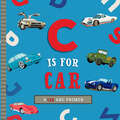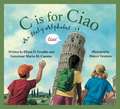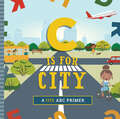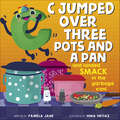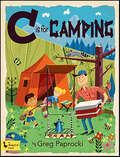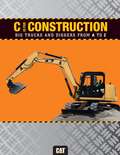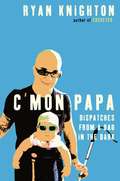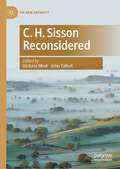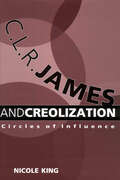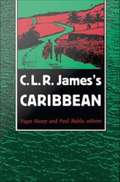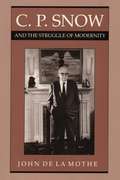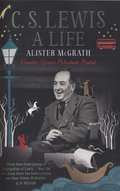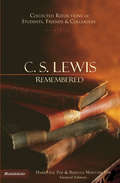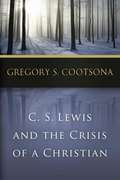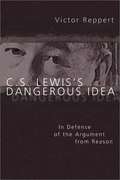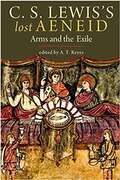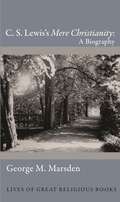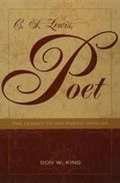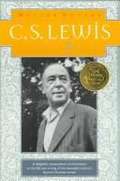- Table View
- List View
C Is For Centennial: A Colorado Alphabet
by Louise Doak Whitney[From the front dust jacket flap:] "Colorado is home to a wide range of natural wonders, from its Rocky Mountain peaks to its sand dunes. Author Louise Doak Whitney gives young readers an A-Z nugget of information with her quick rhymes. O is for "O Beautiful for spacious skies, for amber waves of grain." Katharine saw it all before her "above the fruited plain." Longer expository passages let older readers sift through a gold mine of interesting facts. Artist Helle Urban's richly detailed paintings provide a masterful backdrop, showcasing Colorado's visual treasures. From Denver, the "Mile High City," to the prehistoric Florissant Fossil Beds National Monument, C is for Centennial invites readers to come meet the places, spaces, and faces that make Colorado unique." Many, many more books in this series are in the Bookshare collection like: B is for Buckeye, for Ohio, and A is for Aloha, for Hawaii. Look for the alphabet book about your state or about the state where you were born, or states where your family and friends live or states where you've visited, or states you are curious to know more about. Soon Bookshare will have all of the state alphabet books in this series.
C Is for Car: An ABC Car Primer
by Ashley Marie MirelesA is for Aston Martin B is for Beetle C is for Corvette With F for Ferrari, K for Karmann Ghia, and S for Shelby, going from A to Z has never been more fun—or fast! Zoom into the ABCs with the classic models and luxury brands that make the car world so amazing!
C Is for Ciao: An Italy Alphabet
by Elissa D. Grodin Mario M. CuomoEach letter of the alphabet represents a topic related to Italy, including aqueducts, Da Vinci, Florence, Montessori, the Sistine Chapel, and zabaglione. A poem introduces each letter topic and expository side-bar text provides details.
C Is for City
by Ashley Marie MirelesA is for airport B is for bookstore C is for city hall . . . Calling all city slickers! With F for fire department, L for library, and S for salon, going from A to Z has never been more urban! Take an alphabetized tour around town and discover the plants, animals, and places that make the city so amazing!
C Is for City
by Nikki Grimes Pat CummingsHere's Nikki Grimes's clever alphabet rhyme as a guide to a big city. From the ice-skating rink to the opera, C Is for City is alive with activity. Pat Cummings's vivid illustrations are filled with alphabetical items for which to search. An answer key is provided in the back.
C Is for Cornhusker: A Nebraska Alphabet
by Rajean Luebs ShepherdFrom the state's eastern border along the Missouri River, where Lewis and Clark embarked on the Corps of Discovery expedition, to the towering geologic landmarks of the west, chronicled in pioneers' journals, there are treasures to explore on each page of C is for Cornhusker: A Nebraska Alphabet.
C Is for Country
by Lil Nas XNEW YORK TIMES BESTSELLER • It&’s time to saddle up! Lil Nas X, the chart-topping music icon and internet sensation behind the hit single &“Old Town Road,&” has crafted an empowering alphabet adventure that shows off his signature &“S is for Swagger&” and &“X is for Extra&” energy in a kid-friendly picture book that is one of a kind—just like him! A is for Adventure. Every day is a brand-new start! B is for Boots—whether they&’re big or small, short or tall. And C is for Country. Join superstar Lil Nas X and Panini the pony on a fabulous journey through the alphabet from sunup to sundown. Featuring bold, bright art from Theodore Taylor III, kids will experience wide-open pastures, farm animals, guitar music, cowboy hats, and all things country in this debut picture book that&’s perfect for music lovers learning their ABCs and for anyone who loves Nas&’s unique genre-blending style and his iconic red-carpet looks. (After all, &“F is for feathers. And fringe. And fake fur.&”)
C Is for Cowboy: A Wyoming Alphabet
by Eugene GaglianoAn alphabet book that introduces Wyoming's history, culture, and landscape, from the altitude of the Grand Tetons to an outdoorsman named Jim Zumbo.
C Jumped Over Three Pots and a Pan and Landed Smack in the Garbage Can
by Pamela JaneThe letter C falls into the garbage can, and it is up to the rest of the alphabet to save him from ending up in the dump! In this rollicking, action-filled story, the letters of the alphabet must work together to help their friend. But four letters of the alphabet are missing! Could they be the answer to saving C? This unique book conveys the transforming power of teamwork and brings language and storytelling to life for young readers as they try to guess the secret word the missing letters form?a word that may save the day for poor C. An adventure, a puzzle, and a word game, this suspenseful story is a delightful approach to letters and words.
C is for Camping
by Greg PaprockiAn engaging collection of 26 illustrations featuring campground favorites from Campfires and Hammocks to S’mores and Wildlife. Illustrator Greg Paprocki’s popular BabyLit alphabet board books feature his classically retro midcentury art style that’s proven to be a hit with both toddlers and adults. Discover new details in each illustration with every successive reading.
C is for Construction: Big Trucks and Diggers from A to Z
by CaterpillarExciting photographs are paired with cool facts and simple explanations in this earthmoving ABC. Kids love trucks and diggers and this alphabet book has all their favorites, from the speedy skid steer loader to the giant 797 off-highway truck (one of the biggest trucks in the world!). Seeing real Cat machines at work, digging, hauling, dumping, and lifting, puts young readers right there on the construction site in the middle of the action. (No hard hats necessary!)
C'mon Papa: Dispatches from a Dad in the Dark
by Ryan Knighton<P>Ryan Knighton's humorous and perceptive tales of fatherhood take us inside an unusual new family, one bound by its father's particular darkness and light. <P>C'mon Papa is Ryan Knighton's heartbreaking and hilarious voyage through the first year of fatherhood. Becoming a father is a stressful, daunting rite of passage to be sure, but for a blind father, the fears are unimaginably heightened. Ryan will have to find novel ways to adapt to nearly every aspect of parenting: the most basic skills are nearly impossible to contemplate, let alone master. And how will Ryan get to know this pre-verbal bundle of coos and burps when he can't see her smile, or look into her eyes for hints of the person to come? But this is no pity party, and Ryan has no time for sentimentality. <P>Tackling these hurdles with grace and humour, Ryan is determined to do his part -- and this is where the fun starts. From holding his daughter as she wails into the night to their first nerve-wracking walk to the cafe, no activity between father and daughter is without its pitfalls. In his struggle to "see" Tess, Ryan reimagines the relationship between father and child during that first chaotic year.
C. C. Mehta
by Shailesh TevaniOn the life and works of Chandravadan Chimanlal Mehta, b. 1901, Gujarati author.
C. H. Sisson Reconsidered (The New Antiquity)
by John Talbot Victoria MoulThis book is the first collection of essays dedicated to the work of C. H. Sisson (1915-2003), a major English poet, critic and translator. The collection aims to offer an overall guide to his work for new readers, while also encouraging established readers of one aspect (such as his well-known classical translations) to explore others. It champions in particular the quality of his original poetry. The book brings together contributions from scholars and critics working in a wide range of fields, including classical reception, translation studies and early modern literature as well as modern English poetry, and concludes with a more personal essay on Sisson’s work by Michael Schmidt, his publisher.
C. L. R. James and Creolization: Circles of Influence
by Nicole KingC. L. R. James (1901–1989), one of the most important intellectuals of the twentieth century, expressed his postcolonial and socialist philosophies in fiction, speeches, essays, and book-length scholarly discourses. However, the majority of academic attention given to James keeps the diverse mediums of James's writing separate, focuses on his work as a political theorist, and subordinates his role as a fiction writer. This book, however, seeks to change such an approach to studying James. Defining creolization as a process by which European, African, Amerindian, Asian, and American cultures are amalgamated to form new hybrid identities and cultures, Nicole King uses this process as a means to understanding James's work and life. She argues that, throughout his career, whether writing a short story or a political history, James articulated his attempt to produce revolutionary, radical discourses with a consistent methodology. James, a Trinidad-born scholar who migrated to England and then to the United States and who described himself both as a black radical and a Victorian intellectual, serves as a definitive model of creolization. King argues that James's writings also fit the model of creolization, for each is influenced by diverse types of discourses. James rarely wrote from within the confines of a single discipline, instead choosing to make the layers of history, literature, philosophy, and political theory coalesce in order to make his point. As his West Indian and Western European influences converge in his work and life, he creates texts that are difficult to confine to a specific category or discipline. No matter which writerly medium he uses, James was preoccupied with how to represent the individual personality and at the same time represent the community. The C. L. R. James that emerges from King's study is a man made more compelling and more human because of his complicated, multilayered, and sometimes contradictory allegiances.
C. L. R. James's Caribbean
by Paul Buhle Paget HenryFor more than half a century, C. L. R. James (1901-1989)--"the Black Plato," as coined by the London Times--has been an internationally renowned revolutionary thinker, writer, and activist. Born in Trinidad, his lifelong work was devoted to understanding and transforming race and class exploitation in his native West Indies, as well as in Britain and the United States. In C. L. R. James's Caribbean, noted scholars examine the roots of both James's life and oeuvre in connection with the economic, social, and political environment of the West Indies. Drawing upon James's observations of his own life as revealed to interviewers and close friends, this volume provides an examination of James's childhood and early years as colonial literatteur and his massive contribution to West Indian political-cultural understanding. Moving beyond previous biographical interpretations, the contributors here take up the problem of reading James's texts in light of poststructuralist criticism, the implications of his texts for Marxist discourse, and for problems of Caribbean development.
C. P. Snow and the Struggle of Modernity
by John de la MotheThe condition of modernity springs from that tension between science and the humanities that had its roots in the Enlightenment but reached its full flowering with the rise of twentieth-century technology. It manifests itself most notably in the crisis of individuality that is generated by the nexus of science, literature, and politics, one that challenges each of us to find a way of balancing our personal identities between our public and private selves in an otherwise estranging world. This challenge, which can only be expressed as "the struggle of modernity," perhaps finds no better expression than in C. P. Snow. In his career as novelist, scientist, and civil servant, C. P. Snow (1905-1980) attempted to bridge the disparate worlds of modern science and the humanities. While Snow is often regarded as a late-Victorian liberal who has little to say about the modernist period in which he lived and wrote, de la Mothe challenges this judgment, reassessing Snow's place in twentieth-century thought. He argues that Snow's life and writings-most notably his Strangers and Brothers sequence of novels and his provocative thesis in The Two Cultures and the Scientific Revolution-reflect a persistent struggle with the nature of modernity. They manifest Snow's belief that science and technology were at the center of modern life.
C. S. Lewis - A Life: Eccentric Genius, Reluctant Prophet
by Alister McgrathThe recent Narnia films have inspired a resurgence of interest in C. S. Lewis, the Oxford academic, popular theologian and, most famously, creator of the magical world of Narnia - and this authoritative new biography, published to mark the 50th anniversary of Lewis's death, sets out to introduce him to a new generation. Completely up to date with scholarly studies of Lewis, it also focuses on how Lewis came to write the Narnia books, and why they have proved so consistently engaging. Accessible and engaging, this new biography will appeal to fans of the films, readers of Lewis and of theologian and apologist Alister McGrath himself.
C. S. Lewis Remembered
by Harry Lee Poe Rebecca Whitten PoeSeventeen students, friends and colleagues of C. S. Lewis offer their personal memories of Lewis as a teacher, scholar, writer and Christian apologist. The volume includes pieces by Lewis' godson, Lawrence Harwood, a transcript of an interview with Owen Barfield, who played an important role in Lewis' shift from atheism to Christianity, and a previously unpublished sketch of Lewis by Mary Shelley Neylan. The appendix includes an article from a science fiction fan magazine that transcribes a conversation between Lewis, Kingsley Amis and Brian Aldiss. Annotation ©2007 Book News, Inc. , Portland, OR (booknews. com)
C. S. Lewis and The Crisis of a Christian
by Gregory S. CootsonaC. S. Lewis has long been recognized as a beloved author of children's literature and an apologist for Christian belief to a skeptical modern world. In this new volume, Gregory S. Cootsona shows us how Lewis can also serve as a guide to the ups and downs of the Christian journey. Like many of us, Lewis suffered from a variety of crises of faith and personal experience. Like us, he came to faith in a world that no longer respects Christian commitment or offers much room for belief in God. Like us, he felt the absence of God when those closest to him died. Like us, he wrestled with doubt, wondering if God is real, or simply the projection of his own wishes onto the screen of the universe. Like us, he knew the kinds of temptations he described with such poignancy and humor in The Screwtape Letters. By examining these and the other crises of C. S. Lewis's life, Cootsona shows us how Lewis found God in each one, and how he shared those discoveries with us in his writing. All those wishing to deepen and enrich their own spiritual journey will find much guidance and wisdom in these pages.
C. S. Lewis's Dangerous Idea: In Defense of the Argument from Reason
by Victor ReppertDarwinists attempt to use science to show that our world and its inhabitants can be fully explained as the product of a mindless, purposeless system of physics and chemistry. Lewis claimed in his argument from reason that if such materialism or naturalism were true, then scientific reasoning itself could not be trusted. Claiming that Lewis's arguments have often been too easily dismissed, Reppert revisits the debate between Lewis and the philosopher Elizabeth Anscombe and demonstrates that the basic thrust of the argument from reason can bear up under the weight of the most serious philosophical attacks. Charging dismissive critics, Christian and not, with ad hominem arguments, Reppert's own rigerous reformulation shows that the greatness of Lewis's mind is best measured not by his ability to do our thinking for us but by his capacity to provide sound direction for taking our own thought further up and further in.
C. S. Lewis's Lost Aeneid: Arms and the Exile
by C. S. Lewis A. T. ReyesC. S. Lewis (1898–1963) is best remembered as a literary critic, essayist, theologian, and novelist, and his famed tales The Chronicles of Narnia and The Screwtape Letters have been read by millions. Now, A. T. Reyes reveals a different side of this diverse man of letters: translator. <p><p> Reyes introduces the surviving fragments of Lewis's translation of Virgil's epic poem, which were rescued from a bonfire. They are presented in parallel with the Latin text, and are accompanied by synopses of missing sections, and an informative glossary, making them accessible to the general reader. Writes Lewis in A Preface to Paradise Lost, “Virgil uses something more subtle than mere length of time…. It is this which gives the reader of the Aeneid the sense of having lived through so much. No man who has read it with full perception remains an adolescent.” Lewis's admiration for the Aeneid, written in the 1st century BC and unfolding the adventures of Aeneas, a Trojan who traveled to Italy and became the ancestor of the Romans, is evident in his remarkably lyrical translation. <p><p> C. S. Lewis's Lost Aeneid is part detective story, as Reyes recounts the dramatic rescue of the fragments and his efforts to collect and organize them, and part illuminating look at a lesser-known and intriguing aspect of Lewis's work.
C. S. Lewis's Mere Christianity: A Biography (Lives of Great Religious Books #24)
by George M. MarsdenMere Christianity, C. S. Lewis's eloquent and winsome defense of the Christian faith, originated as a series of BBC radio talks broadcast during the dark days of World War Two. Here is the story of the extraordinary life and afterlife of this influential and much-beloved book. George Marsden describes how Lewis gradually went from being an atheist to a committed Anglican—famously converting to Christianity in 1931 after conversing into the night with his friends J. R. R. Tolkien and Hugh Dyson—and how Lewis delivered his wartime talks to a traumatized British nation in the midst of an all-out war for survival. Marsden recounts how versions of those talks were collected together in 1952 under the title Mere Christianity, and how the book went on to become one of the most widely read presentations of essential Christianity ever published, particularly among American evangelicals. He examines its role in the conversion experiences of such figures as Charles Colson, who read the book while facing arrest for his role in the Watergate scandal. Marsden explores its relationship with Lewis's Narnia books and other writings, and explains why Lewis's plainspoken case for Christianity continues to have its critics and ardent admirers to this day. With uncommon clarity and grace, Marsden provides invaluable new insights into this modern spiritual classic.
C. S. Lewis, Poet: The Legacy of His Poetic Impulse
by Don W. KingThe Legacy of His Poetic Impulse Don W. King contends that Lewis's poetic aspirations enhanced his prose and helped make him the master stylist so revered by the literary world. With its careful examination of early diaries and letters, and the inclusion of four of Lewis's previously unpublished narrative poems and eleven of his previously unpublished short poems.
C. S. Lewis: A Companion and Guide
by Walter HooperThe Life & Works of the Most Beloved Christian Thinker & Storyteller of the Twentieth Century--An Indispensable Resource. In this masterful and authoritative compendium, one of Lewis's keenest interpreters offers an illuminating and utterly entertaining look at his works--from The Chronicles of Narnia to his many essays on Christianity--and the life of the extraordinary man who created them.

